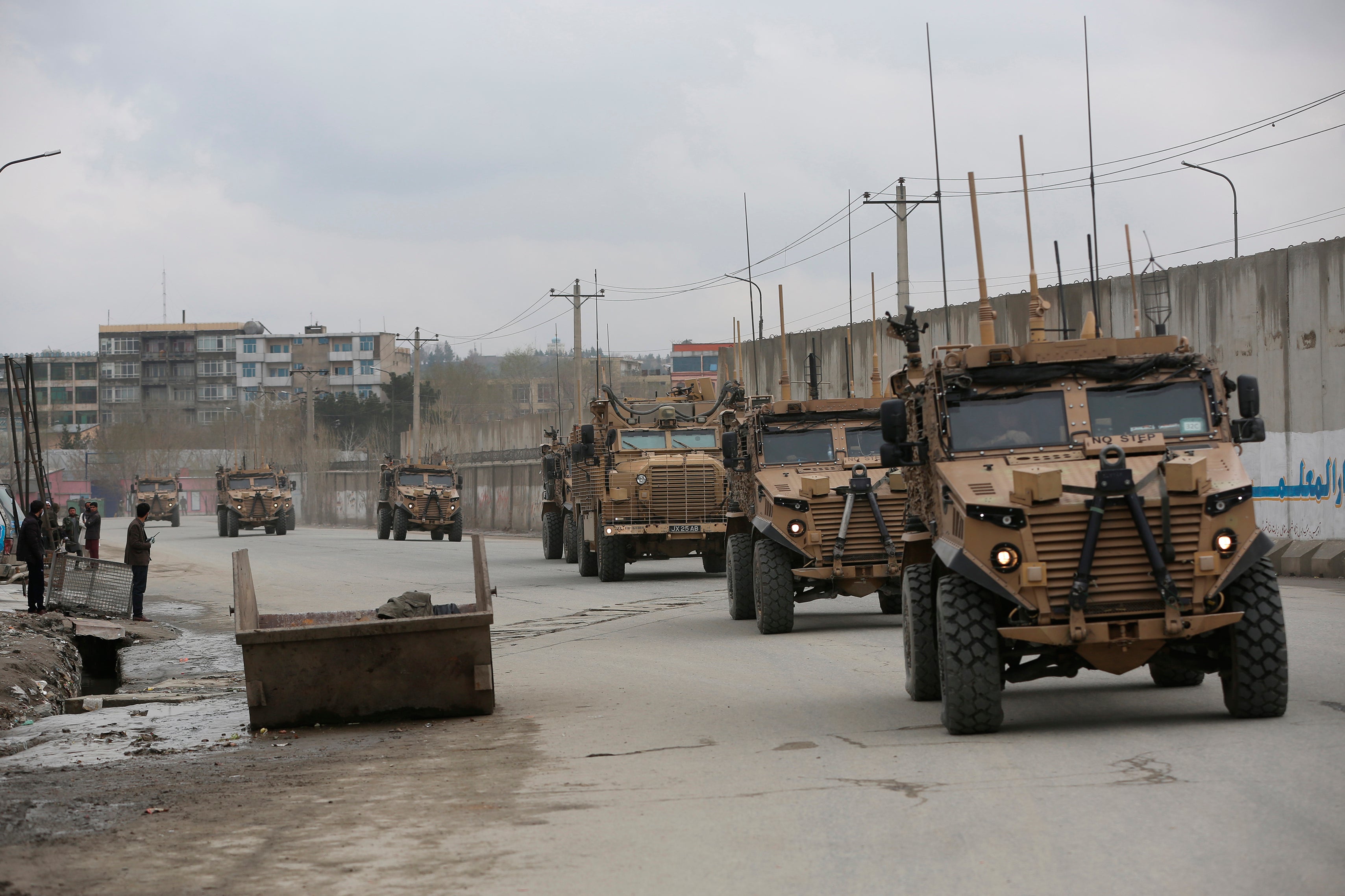UK ex-military chiefs urge more help for Afghan interpreters
Dozens of former military commanders are calling on the U.K. government to relocate more of the Afghans who worked with British troops over the last 20 years

Your support helps us to tell the story
From reproductive rights to climate change to Big Tech, The Independent is on the ground when the story is developing. Whether it's investigating the financials of Elon Musk's pro-Trump PAC or producing our latest documentary, 'The A Word', which shines a light on the American women fighting for reproductive rights, we know how important it is to parse out the facts from the messaging.
At such a critical moment in US history, we need reporters on the ground. Your donation allows us to keep sending journalists to speak to both sides of the story.
The Independent is trusted by Americans across the entire political spectrum. And unlike many other quality news outlets, we choose not to lock Americans out of our reporting and analysis with paywalls. We believe quality journalism should be available to everyone, paid for by those who can afford it.
Your support makes all the difference.Dozens of former military commanders are calling on the U.K. government to relocate more of the Afghans who worked with British troops over the last 20 years, arguing that they are likely to be murdered by the Taliban as foreign forces pull out.
Retired Gen. Richard Dannatt, the former chief of the General Staff, and other senior leaders of the campaign in Afghanistan said the resettlement program for interpreters and other staff needed to act with more “generosity and urgency.”
“Too many of our interpreters have unreasonably been rejected,” they said in a letter to Prime Minister Boris Johnson that was published Wednesday. “We urge the government to review the policy immediately. Only those constituting a national, security threat should be excluded.”
The U.K. has a “moral obligation” to resettle people who risked their lives to help British troops, and failure to do so will damage the country’s reputation abroad, Dannatt said in an interview with the BBC
Among those currently ineligible for resettlement are Afghans who were dismissed for minor infractions, such as a man who took an unauthorized day of leave to visit his sick mother, Dannatt said. Expanding the program would allow about 4,000 more Afghan employees and their families to move to the U.K., in addition to the 3,000 who have already been resettled, he said.
“We are also gravely concerned for Afghan staff who provided essential support to us but who are ineligible for relocation because they did not work in an `exposed role’ or were contracted through third parties,’’ the former commanders wrote. “The Taliban make no such distinction.”
At the peak of the post-2001 deployment there were almost 10,000 British troops in Afghanistan, mostly in Helmand province in the south. Britain ended combat operations in 2014, but about 750 troops remain in the country to train Afghan forces.
U.S. and other NATO troops are ending a deployment launched against al-Qaida and Taliban forces in the wake of the Sept. 11 attacks.